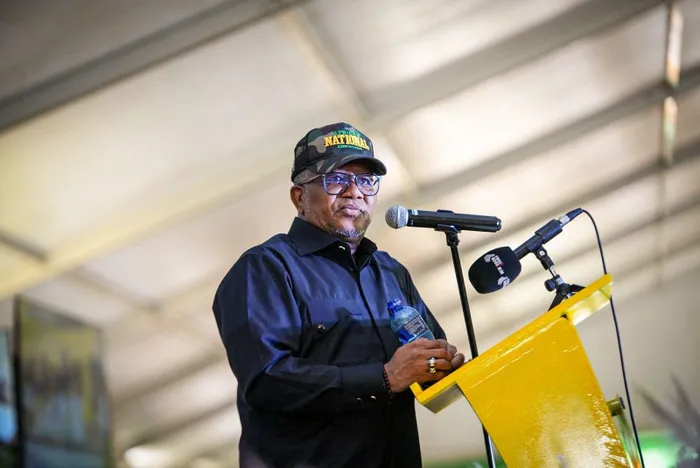Mbalula says Madlanga Commission prevented possible repeat of July unrest

ANC secretary general Fikile Mbalula stresses that the ANC endorsed the Madlanga Commission through the NEC, warning that ignoring police commissioner Mkhwanazi’s claims could have led to chaos similar to the 2021 unrest.
Image: ANC/ X
ANC secretary general Fikile Mbalula says President Cyril Ramaphosa’s decision to establish the Madlanga Commission was necessary to prevent a repeat of the July 2021 unrest.
He warned that ignoring the serious allegations made by KwaZulu-Natal police commissioner Lieutenant General Nhlanhla Mkhwanazi could have led to widespread instability.
Speaking at the ANC’s Mpumalanga Provincial General Council in Mbombela, Mbalula dismissed criticism that the president should have acted directly instead of instituting a commission of inquiry.
He made it clear that the ANC collectively, through its National Executive Committee (NEC), had endorsed the commission and that the support did not stem from the president acting unilaterally.
“We went to the NEC, everybody supported the establishment of the commission. There’s nobody who said there in the NEC we are opposed,” said Mbalula. ''The ANC supports the establishment of the Madlanga Commission.”
Mbalula emphasised that the decision to set up the inquiry was not simply about an internal political matter, but about safeguarding the country against threats to its democratic order.
He referred to the unrest that followed the arrest of former President Jacob Zuma in July 2021, during which over 300 people died in Gauteng and KwaZulu-Natal, warning that a similar revolt could have erupted if the current allegations about state capture by criminal cartels had been ignored.
“On the 6th of July, we wake up, there’s a policeman addressing the nation saying, here are the allegations,” he said.
“There are many forces in society that wanted to elevate that thing to a form of revolt against the democratic state, like it happened during the Jacob Zuma unrest.”
“You remember? They said they don’t know why Zuma is arrested and then they brought the country down,” said Mbalula.
He argued that the nature of the allegations, including claims that criminal cartels and tsostis infiltrated the state, meant that failing to respond decisively could have led to a collapse of public confidence in the democratic system.
“If the president of the country, according to the ANC, were to treat that matter anyhow as a by-the-way issue, this country was going to turn into flames,” said Mbalula.
He said Mkhwanazi’s public disclosures regarding the threats facing the state highlighted the urgency of acting swiftly, not downplaying what he called a “matter that borders on this country becoming a banana republic and the fall of the rule of law.”
Mbalula dismissed suggestions that the matter could have been handled through other mechanisms, insisting that the commission route was legally sound and politically necessary.
“The president took a decision in his own wisdom, legally guided. As the ANC, we supported that because the matter Mkhwanazi was raising was important,” he said.
“If somebody wakes up and says the state is infiltrated by criminal cartels and you put a blind eye on that, our people are not fools. They were going to revolt against the democratic state and say this government doesn’t care about us.”
He added that the commission’s terms of reference were clear and enforceable, pointing out that anyone subpoenaed must appear or face arrest.
“The terms of the commission of inquiry, like even this one of Madlanga, are very clear. If you are subpoenaed and you don’t appear, you will be arrested and sent to jail for a limited period without trial,” he said.
Mbalula further said the ANC was aware of attempts to place the party on trial for the actions of individuals, but reiterated that the organisation would not shield wrongdoers.
“We anticipate attempts to put the ANC in the dock for the actions of individuals. Our message is simple, let evidence lead,” he said.
“Where individuals are found to have acted outside the parameters of the constitution and the law, the law must take its course. Where systems failed, we must fix them.”
He said ANC delegates must “understand, follow and defend policy” and added that the rule of law remained a fundamental principle of the ANC’s national democratic revolution.
“We are okay with the fact that this commission is dealing with that particular matter,” he said.
hope.ntanzi@iol.co.za
IOL Politics